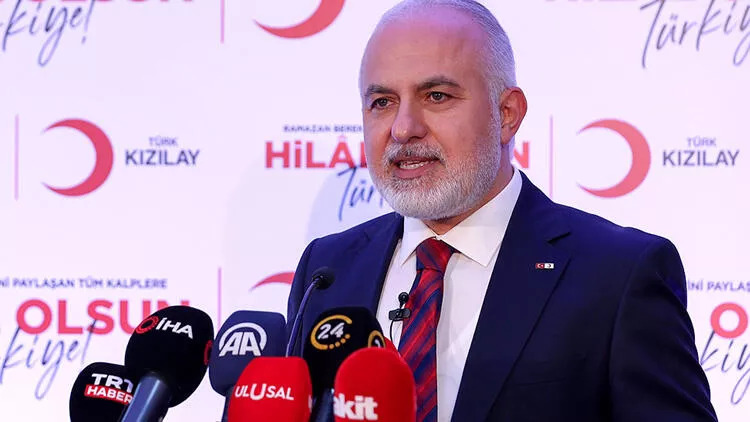The president of the Turkish Red Crescent (Kızılay) has put the blame on the Gülen movement for the Justice and Development Party (AKP) government’s poor response to last week’s powerful earthquake, the TR724 news website reported on Tuesday.
A 7.8-magnitude quake struck near the city of Gaziantep as people slept on Feb. 6, killing 31,643 people and injuring more than 80,000 across the 10 hardest-hit southeastern provinces, according to the latest official figures. The quake was followed by dozens of aftershocks, including a 7.5-magnitude temblor that struck the region later the same day.
Following the quake Turkish President Recep Tayyip Erdoğan and his AKP government came under fire due to their poor performance in coordinating search and rescue efforts.
Journalist Fatih Portakal on Tuesday asked Kızılay President Dr. Kerem Kınık why the Turkish authorities chose to plan all search and rescue operations through Turkey’s Disaster and Emergency Management Presidency (AFAD), which was established in 2009, instead of the 155-year-old Kızılay.
Depremde enkazın altında kalan kurumlardan #Kızılay'ın başındaki Kerem Kınık'a göre, sorumlu 8 yıldır ülkede olmayan cemaat…
Portakal: Sizi de mi 'fetö' çökertti
Kınık: Yok, bizi çökertemedi hepsini temizledik| VİDEO HABER pic.twitter.com/alJjWkvN84
— Tr724 (@Tr724) February 14, 2023
“Why do we use Kızılay just to distribute food and the like? Why didn’t the authorities implement a plan [that organizes search and rescue efforts] under the roof of such a well-established institution?” Portakal asked.
Kınık said Turkey’s civil protection mechanism, based on collaboration between civilians and military members, was “brought down” by FETÖ, a derogatory term used by the Turkish government to refer to the Gülen movement as a terrorist organization.
When Portakal asked, “Was Kızılay, too, brought down by FETÖ?” Kınık replied that it wasn’t since they were all “removed” from the humanitarian organization.
The Gülen movement is the subject of constant scapegoating in Turkey although many of its followers are behind bars on bogus terrorism or coup charges or had to flee abroad to avoid government persecution.
Erdoğan has been targeting followers of the Gülen movement, a faith-based group inspired by Turkish cleric Fethullah Gülen, since the corruption investigations of Dec. 17-25, 2013, which implicated then-prime minister Erdoğan, his family members and his inner circle.
Dismissing the investigations as a Gülenist coup and conspiracy against his government, Erdoğan designated the movement as a terrorist organization and began to target its members. He locked up thousands including many prosecutors, judges and police officers involved in the investigation as well as journalists who reported on them.
Erdoğan intensified the crackdown on the movement in the aftermath of a coup attempt on July 15, 2016 that he accused Gülen of masterminding. Gülen and the movement strongly deny involvement in the abortive putsch or any terrorist activity.
Following the coup attempt, the Turkish government declared a state of emergency and carried out a massive purge of state institutions under the pretext of an anti-coup fight. More than 130,000 public servants, including 4,156 judges and prosecutors, as well as 24,706 members of the armed forces were summarily removed from their jobs for alleged membership in or relationships with “terrorist organizations” by emergency decree-laws subject to neither judicial nor parliamentary scrutiny.
In addition to the thousands who were jailed, scores of other Gülen movement followers had to flee Turkey to avoid the government crackdown.



